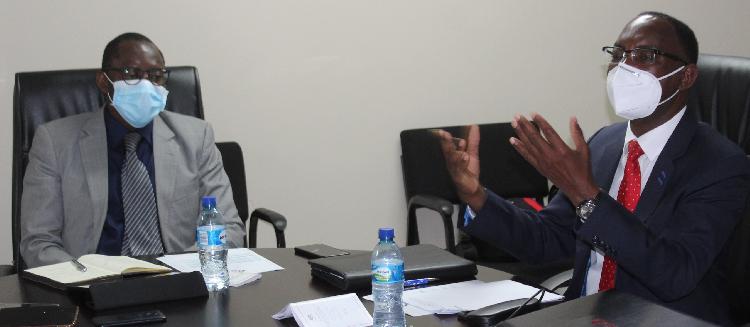Africa-Press – Namibia. ANTI-CORRUPTION Commission (ACC) director general Paulus Noa says traditional leaders are distributing land “like they are dishing out vetkoek”.
He was speaking earlier this week at Swakopmund during the seventh annual meeting between the ACC and Erongo media. Noa, who spoke mostly on the new National Anti-corruption Strategy and Action Plan for 2021 to 2025, also lashed out at local authority officials, saying they were elected “because they make noise”.
“You are empty … you are a councillor just because you make a lot of noise, but you are in fact disruptive to the system and, as a result, some local authorities today are areas of disaster,” he lamented.
He said councillors cannot just change laws on their own if former laws no longer address challenges in the local authorities; there is a legal process that needs to be followed.
He added that traditional leaders must also be investigated and held accountable for corruption and environmental damage attributed to their unlawful decisions.
“They distribute land like they are dishing out vetkoek. When they become traditional leaders they think communal land becomes their own property, but the land has been entrusted to them to manage, not dish it out. Now they have sold every piece of land that even the children have no playing fields and have put cuca shops all over just to put money into their pockets. They need to be investigated because they are public officials,” he said.
He said good governance is not the promotion of the welfare of the people through the provision of public facilities and services alone, but such functions should be in accordance with the laws.
According to Noa, the new ACC strategy must be implemented optimally so that more progress can be made in fighting corruption. ERONGO COUNCILS PROBED It was also revealed that the ACC is investigating 20 corruption cases involving five of Erongo’s seven local authorities.
ACC Erongo acting chief investigator Frieda Kanyama said that the corruption watchdog in the region has 75 active cases, of which 20 involve local authorities. Arandis and Karibib have zero registered matters.
“That does not mean there is no corruption whatsoever. It is just that no cases have been registered,” she said.
Henties Bay has four cases, Walvis Bay (nine), Omaruru and Usakos (two each), and Swakopmund (three). Three of the matters are being heard in court, while the others are ongoing investigations that include waiting for the Office of the Prosecutor General to give further instructions.
Kanyama said most of the allegations pertaining to local authorities include procurement tenders, land sales, recruitment, revenue, salaries and subsistence allowances, and bribery within the traffic departments. To strengthen the control mechanisms within local authorities, Kanyama recommended that risk assessments be done through public education and training in conjunction with the institution’s internal audit function, “if they have one”.
“Sometimes there is such a function with staff allocations, but in reality municipalities are using funds meant for auditing functions for other activities,” she said.
Erongo governor Neville Andre said the poor bear the brunt of the consequences of corruption, as corruption leads to unemployment, poverty and the erosion of services. He urged the ACC to strengthen education on its role and mechanisms.
“A clear understanding of the process will help crush the head of corruption,” he said. Andre also said the role of the media to share information and shed light on current issues pertaining to corruption was crucial.
“Corruption will die when it is brought into the light … and the media’s role is to bring the issues to the attention of everyone,” he said.






